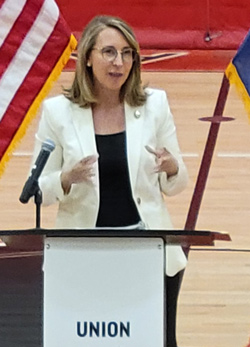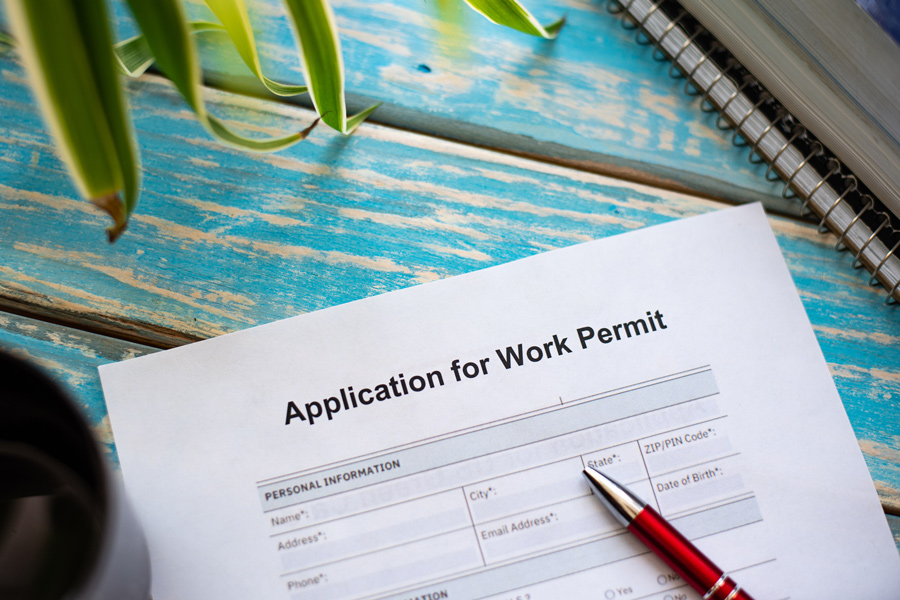All districts — Minors have a right to work in the United States, and many do. Receiving a first paycheck as a teenager can be a milestone marking new independence. In addition to being a source of income, first jobs are an introduction to the responsibilities that various careers entail and to the skills that are needed for success outside of school.
However, for some students — especially for unaccompanied minors who may come to the United States for the purpose of supporting their families financially — the jobs they may find themselves in can actually reduce their chances for success, both now and in the future.
A Feb. 28 New York Times article brought this troubling situation to the fore. It revealed the illegal employment and exploitation some minors experience, including exposure to hazardous conditions and late-night employment, because of unscrupulous businesses and sponsors — including students employed by companies in Kent County.
Further, in a follow-up story, The Times reported that some sponsors are absent for weeks at a time in homes where many unaccompanied minors live, and that some employers circumvent the work permitting process completely.
Although The Times investigation focused on exploitative practices by employers, schools also play a role in supporting minors by issuing work permits for jobs students are legally permitted to work. While this is largely routine paperwork for students to work jobs like fast-food restaurants or ice cream stands, work permits take on more importance if a student is seeking employment in dangerous construction or factory jobs.
Student work permit regulations in Michigan at a glance
• Students may not begin working without a valid work permit
• Permits are employer and location specific
• Minors may not work in occupations that are hazardous to their health or well-being
• Adult supervision is required
• Students who are 14 or 15 may work 18 hours during a school week, while those 16 or 17 may work 24 hours
• 11-13 year olds may be employed under certain circumstances
• Permits may be revoked by the school for attendance and academic declines during employment and/or notification of an employer’s violations of law
• Minors may appeal the refusal or revocation of a work permit
Source: State of Michigan youth work permit forms
Work Permits Part of the Law
Federal law governs the processes used to ensure children are not exploited when they are employed. Everything from number of hours, type of work and adequate supervision are covered in the 1978 Youth Employment and Standards Act.
Beata Kico, public information officer for the Michigan Department of Labor and Economic Opportunity, said that enforcement of the act is the responsibility of the Bureau of Employment Relations. The department provides a claim form to report complaints and alleged violations of the act.
Besides these safeguards, schools also play an important part in the safe and legal employment of minors.
Obtaining a work permit from school is a significant step in the process. In Michigan, this is initiated by the student prior to starting in any paid employment or unpaid jobs that may lead to paid employment.
After the student applies, the school’s designated officer (the chief operating officer of a district or designee) issues an age-appropriate permit. The employer is then required to keep the form on file at the child’s workplace. A copy is also filed in the student’s school records.
‘First, middle and last we need to make sure that (companies that violate child labor laws) are being held accountable.’
— U.S. Rep. Hillary Scholten (D-Grand Rapids)
Work permits are very specific and differ depending on whether a child is either 15 and under, or is 16 or 17 (18-year-old students are not required to have permits). Both work permits include the caution that “a minor may not be employed in an occupation that is hazardous or injurious to the minor’s health or personal well-being or which is contrary to (legal) standards.”
Schools are also responsible to verify the minor’s age, that all information on the permit is complete and that the work complies with federal and state laws and regulations.
Many schools give detailed and helpful direction about the process to obtain a work permit. As an example, Forest Hills Public Schools clearly outlines the process they use for obtaining work permits on their website.
Even home-schooled students must visit their local school to obtain a work permit. However, students who do not attend school in any way may rely on falsified documents or unscrupulous employers to obtain work.
Moreover, not all states require work permits, and some states are working to roll back child labor protections in favor of parents’ right to decide how, where, and when their children may work.
Exploitation Exposed, Action Taken
The Feb. 28 New York Times article cited numerous instances in which young workers were illegally employed, in Kent County and elsewhere. Focusing on unaccompanied minors in the country legally, it showed students also being exploited by sponsors who agree to care for them but demand payments for rent, food and transportation adding up to thousands of dollars.
Further, in a follow-up story, The Times reported some sponsors are absent for weeks at a time in homes where many unaccompanied minors live, and that some employers circumvent the work permitting process completely.
‘The law is straightforward in what is allowed and in the best interest of students.’
— Chris Glass, Kent ISD assistant superintendent
Complicating the situation further, The Times reported, impoverished families in some countries of origin expect the child will work in the United States, and that “many of these children are under intense pressure to earn money.” Consequently, a minor’s health and school attendance may suffer so the family’s financial well-being can be met.
The White House itself as well as federal agencies came under criticism in the Times investigation for ignoring warnings and insufficiently vetting or supporting sponsors in a rush to move children through emergency shelters.
In the wake of the investigation, the Biden administration launched initiatives to combat child labor exploitation, pledged a crackdown against employer violations, and promised more support for child migrants released to sponsors

Meanwhile, within 24 hours of reading the initial story, U.S. Rep. Hillary Scholten (D-Grand Rapids) contacted Grand Rapids Public Schools requesting an immediate meeting, Superintendent Leadriane Roby said at a recent town hall meeting at Union High School, where some of the students in the Times story attend.
“This is the kind of urgency that we need to see from our elected officials, our government, when it comes to protecting our children,” Roby said.
In response to the Times report, Scholten and fellow Congresswoman Nancy Mace (R-South Carolina) introduced a bipartisan bill to get to the root of the exploitation — the employers. The Justice for Exploited Children Act would increase the civil penalties, which have remained unchanged since 1938, on companies for the illegal employment of children.
Though not a “cure-all,” the act is “a solution-oriented bill” to begin addressing the problem, Scholten said at the Union High town hall May 2.
“In order for these enforcements to have any teeth, we need to raise the (fines for) violations, so that violating kids’ rights, exploiting children, isn’t just the cost of doing business,” Scholten said.
Complex Issues for Schools
In a March 29 press conference announcing her bill, Scholten pointed out some of the complexity of child labor exploitation when it comes to schools.
“So often the kids aren’t necessarily telling their teachers that they’re working. A teacher sees a fatigued child and they’re just going to treat the child and make sure that they’re getting the education they need in the classroom and attend to them as a tired learner.”
She noted educators are mandated to report illegal employment of their students if they become aware of it. But she emphasized the legal responsibility for violations falls squarely on the employers.
“We all can look around and say we could have done a lot more as engaged citizens to recognize the scourge of exploitation that is happening to kids and adults in our community,” Scholten said. “But there are very clear laws on the books that were violated, some in very flagrant ways, by these companies who profited off these children. First, middle and last we need to make sure that they are being held accountable.”

Chris Glass, assistant superintendent of legislative and organizational initiatives for Kent ISD, echoes her point. While affirming that minors can learn valuable skills in the workplace, he notes that balance is needed to protect students.
“Each entity must hold up their responsibilities under law,” Glass said. “Employers have obligations. If there are still violations, then penalties must be looked at.”
“Preparing today’s youth for a safe and secure tomorrow” is a societal responsibility, one that the U.S. Department of Labor cites in YouthRules, a guide to child employment it publishes that is directed to teens and their caregivers.
While the process of obtaining a work permit from school may be somewhat routine, it is an important safeguard in the protection of minors, so that they can thrive today and in the future, officials agree.
Glass says there is no room for doubt in interpreting the law when it comes to protecting students and ensuring their jobs do not interfere with a good education.
“The law is straightforward in what is allowed and in the best interest of students,” Glass said. “The conditions of the law must be met.”
Read more from Kent ISD schools:
• Library branch in high school has first-ever internship program
• For newcomers to America, a ‘fighting chance’ at a good education









